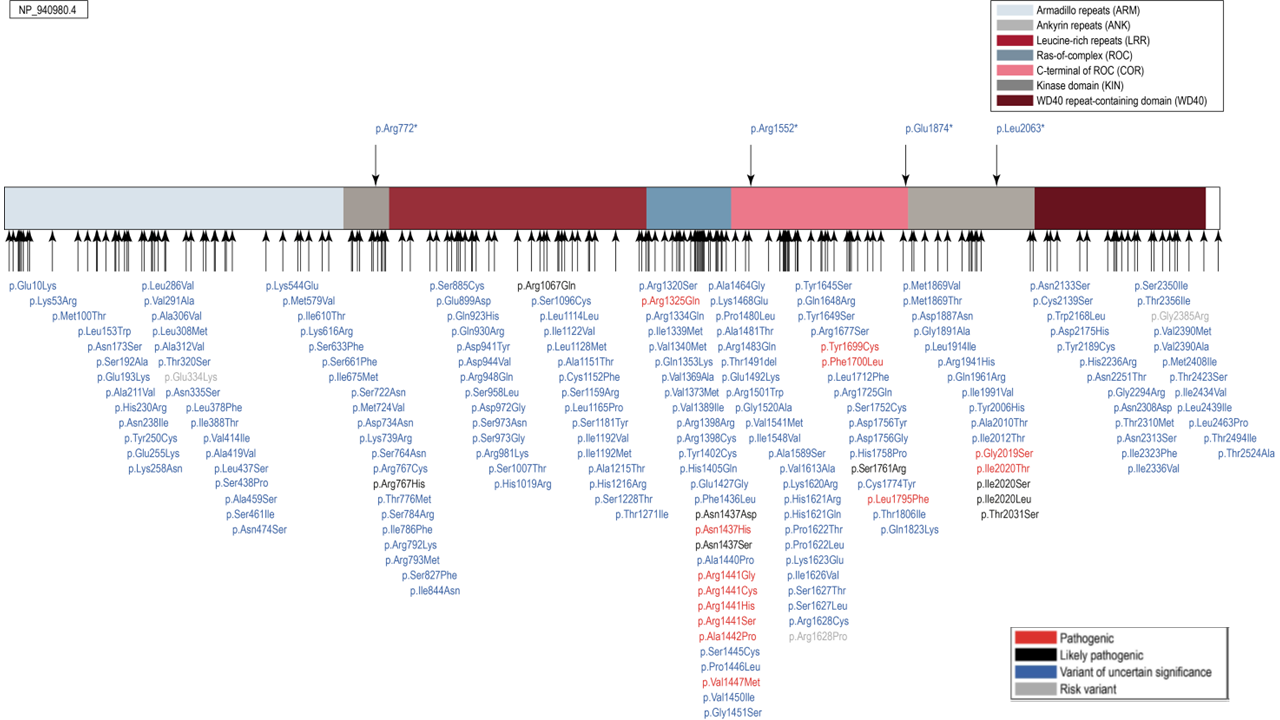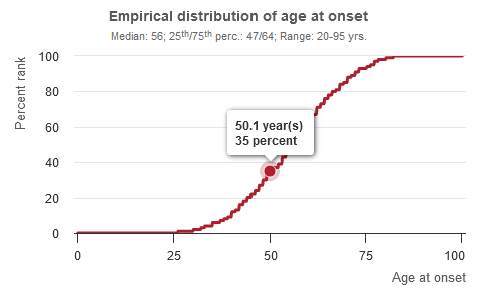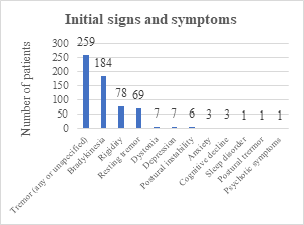Category: Parkinson's Disease: Genetics
Objective: To provide a comprehensive and systematic overview of published data on carriers of pathogenic variants in the LRRK2 gene, including demographic, clinical, and genetic information.
Background: Pathogenic variants in the LRRK2 gene are one of the most common monogenic causes of Parkinson´s disease (PD, PARK-LRRK2). LRRK2 (leucin-rich repeat kinase 2) encodes a multidomain protein kinase that plays an important role in different cellular processes that are dysregulated by increased LRRK2 kinase activity resulting in the death of dopaminergic neurons. Carriers of pathogenic variants in PARK-LRRK2 are candidates for gene-specific, targeted treatments by LRRK2 kinase inhibitors that are currently being evaluated in clinical trials.
Method: We here present a systematic literature review based on the MDSGene protocol (https://www.mdsgene.org/). All detected variants underwent comprehensive pathogenicity scoring taking into account published data on LRRK2 kinase activity.
Results: Data on 7,885 individuals with 292 different variants were curated, including 3,296 patients with PD carrying 205 different potentially disease-causing LRRK2 variants (Figure 1). Missingness of phenotypic data in the literature was high, hampering the identification of detailed genotype-phenotype correlations. Notably, the median age at onset in the patients with available information was 56 years, with approximately one-third having PD onset <50 years (Figure 2). Tremor was the most frequently reported initial symptom (in 52.7% of the patients with available information, Figure 3), i.e., more frequent than reported in other dominantly inherited forms of PD. Of the 205 presumably PD pathogenic variants, 14 (6.8%) were classified as pathogenic, 8 (3.9%) as likely pathogenic, and the remaining 183 (89.3%) as variants of uncertain significance (VUS). The p.G2019S variant was the most frequent pathogenic variant, followed by p.R1441G, with Tunisia and Spain contributing >40% of patients.
Conclusion: This systematic review represents the largest database on PARK-LRRK2 to date and provides an important resource to improve precision medicine. Given their high frequency, a better interpretation of the pathogenicity of VUS is needed for the selection and stratification of patients in clinical trials. All data is available at www.mdsgene.org.
Potentially pathogenic LRRK2 variants
Distribution of age at onset (www.mdsgene.org).
Initial signs and symptoms.
To cite this abstract in AMA style:
C. Krüger, S-Y. Lim, A. Buhrmann, FL. Fahrig, C. Gabbert, N. Bahr, H. Madoev, C. Marras, C. Klein, K. Lohmann. MDSGene Update and Expansion: Clinical and Genetic Spectrum of LRRK2 Variants in Parkinson´s Disease [abstract]. Mov Disord. 2024; 39 (suppl 1). https://www.mdsabstracts.org/abstract/mdsgene-update-and-expansion-clinical-and-genetic-spectrum-of-lrrk2-variants-in-parkinsons-disease/. Accessed January 8, 2026.« Back to 2024 International Congress
MDS Abstracts - https://www.mdsabstracts.org/abstract/mdsgene-update-and-expansion-clinical-and-genetic-spectrum-of-lrrk2-variants-in-parkinsons-disease/



